MercoPress. South Atlantic News Agency
Economy
-
Friday, May 24th 2013 - 07:50 UTC
Pacific Alliance agrees to eliminate tariffs for 90% of goods beginning July

The Alliance of the Pacific bloc that includes Colombia, Mexico, Peru and Chile on Thursday agreed to eliminate tariffs on most goods to promote free trade between the countries and increase exports to Asia.
-
Friday, May 24th 2013 - 07:45 UTC
Toilet paper shortage is because ‘Venezuelans are eating more’ argues the government

A few hours after the Venezuelan congress voted a 79 million dollars credit for the import of 39 million rolls of toilet paper and other personal hygiene items, the government of President Nicolas Maduro said this was because “Venezuelans are eating more”.
-
Friday, May 24th 2013 - 07:23 UTC
British Overseas Territories tax havens hold £ 4 trillion, claims Oxfam

People using tax havens have deprived governments worldwide of £100 billion in revenue, enough to end extreme poverty twice over, according to new figures published by Oxfam. The total amount of lost tax revenue is far higher than £100 billion, as the figure only includes tax dodged by individuals, and not companies.
-
Friday, May 24th 2013 - 07:10 UTC
As the US before IMF lines up behind Argentina in the litigation with hedge funds

For the first time since the litigation of hedge funds against Argentina the International Monetary Fund warned about the ‘risks’ which would entail ratifying Judge Thomas Griesa ruling condemning Argentina to pay over a billion dollars plus interests to the so called ‘vulture funds’.
-
Friday, May 24th 2013 - 07:05 UTC
Argentina raids factory of US investor head of a hedge fund litigating defaulted sovereign bonds
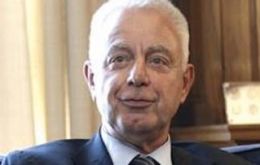
Argentine authorities investigating alleged tax and currency exchange fraud searched this week the factory of a U.S. investor who is among litigants seeking hundreds of millions over Argentina's 2001 default.
-
Friday, May 24th 2013 - 06:51 UTC
Argentina’s trade surplus shrank 38% in April as imports soar 32%
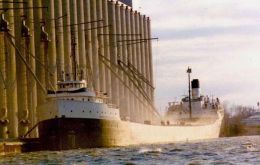
Argentina's trade surplus shrank 38% in April from a year earlier to 1.15bn, revealed the national statistics institute Indec, indicating the government has significantly loosened restrictions on imports. A year ago the surplus was 1.85bn dollars.
-
Thursday, May 23rd 2013 - 19:45 UTC
Energy - Balancing the Bonanza: Interview with Mark Thoma
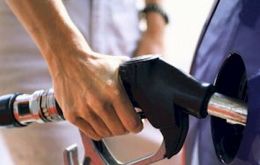
Interview by James Stafford of Oilprice.com - If you want an objective view of energy, ask an economist, who can tell you what to expect to pay at the pump in the coming years, and why, as well as what to expect from medium- and long-term economic growth and what the real drivers will be. These are questions that are crucial to a pending decision by the US government over natural gas exports, and while we know where big oil stands versus its manufacturing rivals—it's the economist who can set things straight.
-
Thursday, May 23rd 2013 - 19:40 UTC
Global economy to pick up in second half forecasts UN agency
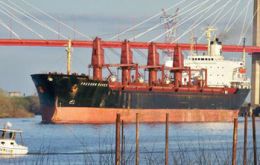
Global economic growth is projected to gain slow momentum for the rest of the year while developing countries will expand an estimated 5%, a United Nations economic forecast said on Thursday.
-
Thursday, May 23rd 2013 - 19:23 UTC
Brazil freezes budget outlays in an effort to meet its primary surplus target
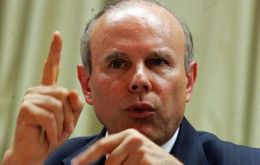
Brazil has frozen 28 billion Reais (approx 13.7 billion dollars) in its 2013 budget as it tries to meet its primary surplus target, Finance Minister Guido Mantega said on Thursday in Brasilia. President Dilma Rousseff’s administration is trying to meet targeted primary surplus goal of 155.9 billion Reais without undermining economic growth.
-
Thursday, May 23rd 2013 - 07:20 UTC
Beware inflation: CFK announces “political groups” will keep track of prices in shops

Argentine President Cristina Fernández (CFK) indirectly acknowledged that inflation has become a major challenge for her government despite the fact that the official reading in twelve months is 10.6%, even when private estimates indicate 24% and expectations have soared to 34%.
